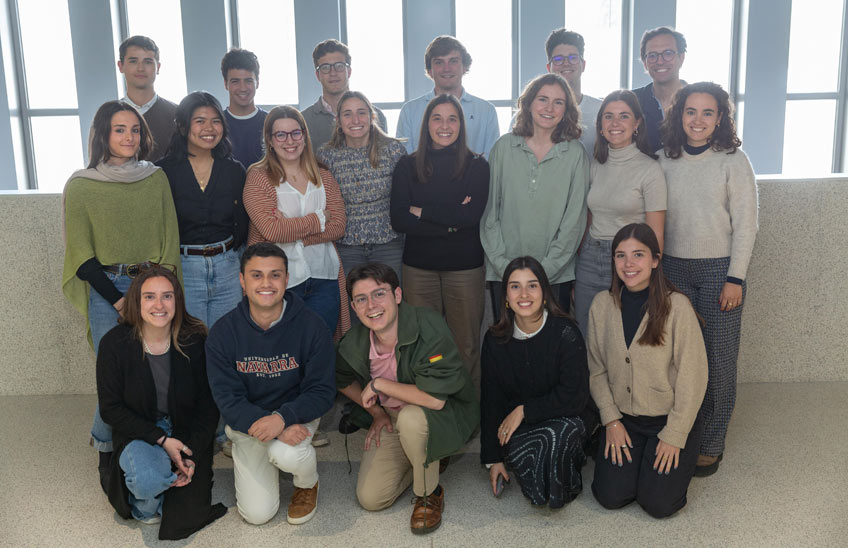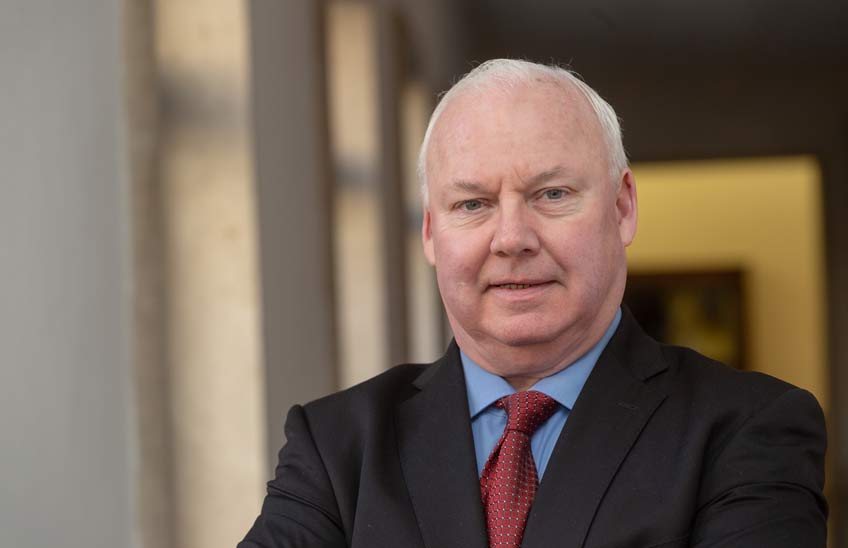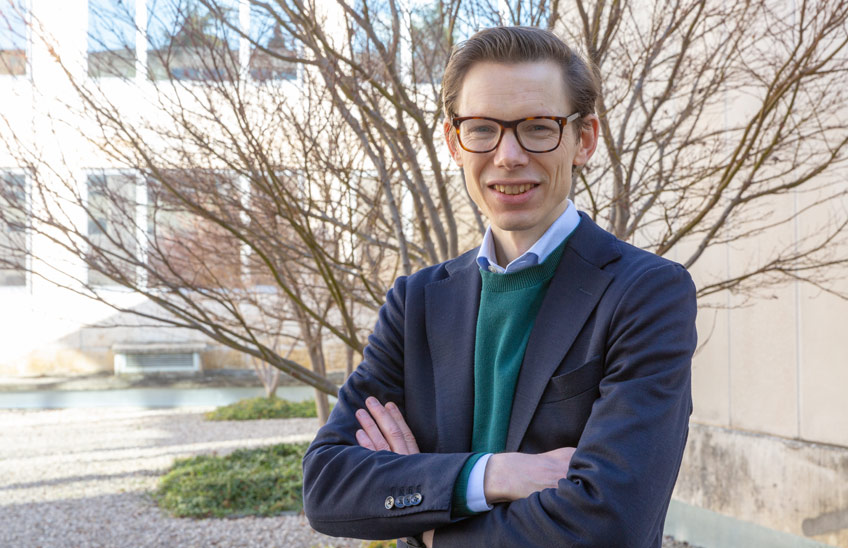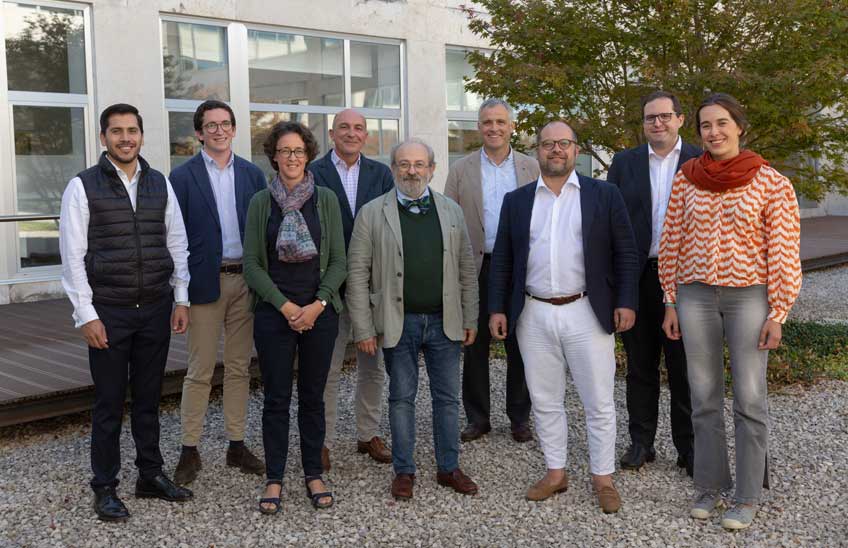25 students from 9 degrees have participated in the program 'Leadership as Service'
The University organized the second edition of a program to promote the development character and sense of purpose in university students

FotoManuel Castells<br>/Los alumnos del programa son estudiantes de los últimos cursos de 9 grados de la Universidad de Navarra.
13 | 06 | 2024
25 students from 9 university degrees -most of them student representatives- have participated in the second edition of the program 'Leadership as Service', organized by the Civic Humanism Center for Character and Professional Ethics, of the Institute of Culture and Society of the University of Navarra, in partnership with the Oxford Character Project of the University of Oxford. This course aims to promote the development of character and the sense of purpose in university students.
According to Javier Gómez, doctor at Philosophy and coordinator of the program, the students provided a very positive assessment of the course: "By working on the virtues, they have been able to identify these in their dail lives, they have made changes to their way of living and have realized that their life is in their own hands," he said. In addition, the students report to have changed their perspective on leadership, from a grandiose ideal to a view of the leader as someone who tries to become a better person and have an impact on the people around him.
"The program has helped me to systematize and clarify leadership so that it does not remain an abstract and general ideal, but a real disposition that we can work on and in which we can educate ourselves," added Almudena Uclés, a student of the double Degree in Philosophy and Law. As a student representative of the School of Philosophy and Letters and central student representative of the University of Navarra, she felt that this program was especially relevant to her. "The course has guided me to learn what authentic leadership consists in, as opposed to mere power, what role personal purpose plays, how to discover it, what values are associated with a leader and why," she said. For his part, Gómez describes a leader as "one who has managed to achieve a character shaped by a series of virtues and who has managed to carry out a mission that consists of ensuring the common good of the community he or she leads, and the flourishing of the people in the community".
The program consisted of 12 workshops where 7 personal qualities or virtues were worked with: sense of purpose, humility, resilience, integrity, prudence, gratitude and service. Each session consisted of a theoretical part that explained the virtues with examples, and then a self-knowledge task was carried out with different activities, such as drawing a line with the most important milestones in their lives, or comparing with friends what they value most in each other. In addition, the program included the Tu&Co mentoring tool, allowing each student to personalize what he or she had worked on in class with a mentor, discussing ideas, character points to improve, and how to apply what they had learned to their own lives.
"I liked giving a new approach to topics such as humility or gratitude -which one can take for granted- and also to delve into virtues such as resilience or prudence, which are very important but less known," said Uclés. This student, like her classmates, appreciated the opportunity to talk, and listen to others during the sessions, which were open to questions and debates. "For me, the questions my fellow students helped me to ask myself were more valuable than the possible answers I could have found," she concluded.
For the program coordinator, it is essential for students to identify and reflect on the virtues, and he said that the students have been able to build a realistic image of a leader. He understands character development in the university setting to be of great importance. "The environment can help develop virtues and character but it takes place primarily in small communities", he said. This underscores the relevance of creating training programs in character development with smaller groups of university students.




